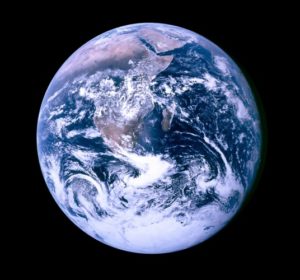Vleestaks broodnodig om klimaatdoelen Parijs te halen
De Partij voor de Dieren roept het kabinet op om een vleestaks in te voeren. De vleesproductie draagt in sterke mate bij aan de opwarming van de aarde. PvdD-Kamerlid Frank Wassenberg stelt dat een hogere btw op vlees noodzakelijk is om de CO2-uitstoot zo te beperken dat de opwarming onder de 1,5 graad blijft.

De klimaattop in Parijs afgelopen december heeft niet geleid tot keiharde afspraken. Wel is afgesproken dat landen proberen om de uitstoot van broeikasgassen zo te beperken dat de temperatuurstijging beneden de 2 graden blijft en liefst niet hoger is dan anderhalve graad. Landen mogen zelf bepalen op welke manier ze de uitstoot van CO2 beperken.
De vee-industrie is één van de grootste uitstoters van broeikasgassen, stelt de Wereldgezondheidsorganisatie. Wereldwijd stoot de vee-industrie 7.000.000.000.000 kilo broeikasgas uit. Terwijl de Nederlandse regering onder de noemer van klimaatslimme landbouw probeert dierenleed te greenwashen, is de makkelijkste en snelste klimaatwinst te boeken door minder dieren te houden in de veeteelt. Dat kan door in te zetten op een meer plantaardig voedselpatroon en een duurzame landbouw.
PvdD-Kamerlid Frank Wassenberg: “De productie van vlees belast het milieu en draagt bij aan het broeikaseffect. Wij kennen in Nederland het principe dat de vervuiler betaalt. Het zou logisch zijn om dat ook voor vlees op te laten gaan. Dat kan via een vleestaks. Nederland zou zich dan aansluiten bij een land als Denemarken. De Deense regering overweegt ook om een vleestaks in te voeren, omdat zij vindt dat het onvoldoende is om consumenten enkel te verzoeken om minder vlees te eten.”
The Party for the Animals calls on the government to introduce a meat tax for the production of meat strongly contributes to global warming. Party for the Animals MP Frank Wassenberg claims that higher VAT should be levied on meat to reduce the CO2 emissions to such an extent that the warming will remain below 1.5 Celsius.

The Climate Summit in Paris last December did not lead to ruthless agreements. The countries did agree that they would attempt to reduce the emissions of greenhouse gases to such extent that the temperature rise would remain below 2 Celsius and preferably not higher than one and a half Celsius. The countries are free to choose how they will reduce CO2 emissions.
The World Health Organisations states that the livestock industry is one of the largest emitters of greenhouse gases. Worldwide, the livestock industry emits 7.000.000.000.000 kilo of greenhouse gas in total. While the Dutch government is attempting to greenwash animal cruelty in terms of climate-smart agriculture, the easiest and fastest way to achieve climate benefits would be to reduce the number of animals in the livestock industry. This can be achieved by adopting a more vegetal diet and sustainable agriculture.
Party for the Animals MP Frank Wassenberg: “The production of meat has an impact on the environment and contributes to the greenhouse effect. In the Netherlands we maintain the principle that the polluter pays. Logically, the same should apply to meat. It can be effected through a meat tax. The Netherlands would then be in line with a country like Denmark. The Danish government is considering to introduce a meat tax because they believe that just asking consumers to eat less meat is not enough.”